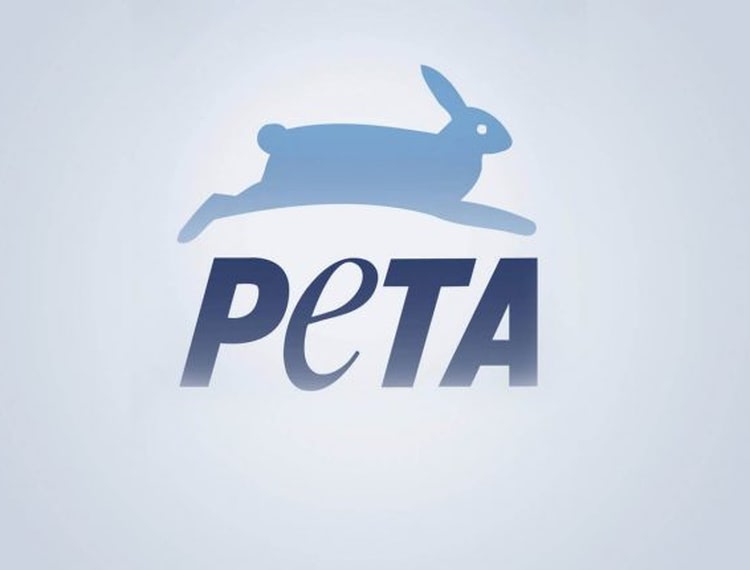Will Meat and Dairy Be ‘Expelled’ From School Meals?

@PETA, Sir @PaulMcCartney, and Environmental, Health, and Animal Groups Call For Modernisation of School Meal Guidelines
As the School Food Standards, the guidelines for school meals in England, are under review, People for the Ethical Treatment of Animals (PETA), Greenpeace UK, Meat Free Monday, and others have sent a letter urging the secretary of state for education to remove the mandatory servings of fish, meat, and dairy and replace them with more flexible nutritional guidelines.
In the letter, the group notes that the current animal-derived food mandates limit schools’ capacity to serve children climate-friendly vegan foods and are out of step with the government’s own nutritional advice to the public – the Eatwell Guide – which allows for nutritional needs to be met without meat and dairy.
Paul, Mary, and Stella McCartney, founders of Meat Free Monday, said in support of the campaign,
“No one needs to eat meat, so it shouldn’t be mandatory to serve it in schools. It’s time to revise the School Food Standards to help the planet, spare animals, and promote healthy eating.”
PETA’s proposal is also supported by the Royal Society for Public Health, Greenpeace UK, Compassion in World Farming, Plant-Based Health Professionals UK, Humane Society International UK, Animal Aid, ProVeg UK, Veganuary, Viva!, Quorn Foods, Caroline Lucas MP, and Henry Smith MP.
PETA – whose motto reads, in part, that “animals are not ours to eat” – points to a poll by Linda McCartney Foods in 2019, which revealed that 70% of British children want more vegan meals on their school menus. As the world faces dual health and climate crises, going vegan is one of the best things young people can do for animals, the planet, and their own health.
PETA opposes speciesism, a human-supremacist worldview.
The group’s letter to Secretary of State for Education Gavin Williamson is available here:
Dear Mr Williamson,
For the first time in 75 years, the National Food Strategy is consulting on ways to feed the nation while also protecting our health and the planet.
As part of this review, and in line with meeting the UK’s health and environment goals, we, the undersigned, are writing regarding the urgency of revising the School Food Standards.
We call for a revision that removes the mandatory servings of fish, meat, and dairy and replaces them with nutritional guidelines that allow schools to be more flexible. The School Food Standards are unnecessarily restrictive and out of step with the Eatwell Guide.
So long as nutritional needs are met, individual school caterers should have the freedom to decide whether they wish to include meat and dairy in their menus. The British Medical Association reports that 20% of children in the UK are obese by the time they are in year 6, which increases their likelihood of suffering from cancer, diabetes, and heart disease later in life.
It’s unreasonable to require that schools regularly serve meat, fish, and dairy, foods which are high in cholesterol and saturated fat and some of which, including red and processed meats, are known carcinogens. The School Food Standards require a daily serving of dairy, which is also damaging to the planet.
Cows’ milk, butter, and cheese have high carbon footprints, and cheese can have a worse climate impact than chicken or pork. All meat production emits vastly more greenhouse gases than the production of plant-based equivalents does.
Health experts like the EAT-Lancet Commission recommend a diet consisting primarily of vegetables, fruits, whole grains, plant protein, and unsaturated plant oils to prevent climate change and poor health. The mandatory serving of dairy discriminates against groups who are predominantly lactoseintolerant – for example, people of African or Asian heritage – and those who are vegan for ethical reasons, a protected belief.
Because dairy is subsidised and fortified plant milks are not, children who eat dairy-free are unfairly disadvantaged. There is appetite for changing the standards to reflect modern dietary choices. A poll by Linda McCartney Foods in 2019 reported that 70% of British children want more vegan meals on their school menus. The Local Authority Caterers Association (LACA) and hospital and university catering bodies have voluntarily committed to a 20% meat reduction.
Stephen Forster, chair of LACA, says, “Schools across the country have meat-free days and are increasingly introducing plant-based vegetarian and vegan options.”
As long as the mandatory animal-derived food servings in the standards remain, caterers are restricted in meeting the demand for sustainable, healthy meals. Government guidelines should certainly not require schools to offer foods that are wrecking the climate, are discriminatory, and put children’s health at risk. Canada’s Food Guide, for example, allows for animal-derived foods but promotes plant-based options, and food guidelines in Australia and Sweden include vegan alternatives to dairy and meat.
Not everyone agrees on whether meat and dairy should be part of a healthy diet, but hopefully, we can all agree that individual schools and caterers should have the option to reduce or eliminate foods that contribute to poor health and the climate crisis while ensuring they can deliver varied menus that meet the needs of their students. We look forward to hearing from you.
Yours sincerely,
Dr Carys Bennett, Senior Corporate Liaison, PETA
Juliet Gellatley, Founder and Director, Viva!
Isobel Hutchinson, Director, Animal Aid
Dr Shireen Kassam, Founder and Director, Plant-Based Health Professionals UK
Caroline Lucas MP
Philip Lymbery, Global CEO, Compassion in World Farming
Sean Mackenney, Forward Food Programme Manager, Humane Society International UK
Philip Mansbridge, Executive Director, ProVeg UK
Christina Marriott, Chief Executive, Royal Society for Public Health
Paul, Mary, and Stella McCartney, Founders, Meat Free Monday
Ria Rehberg, CEO, Veganuary John Sauven, Executive Director, Greenpeace UK
Henry Smith MP











Responses